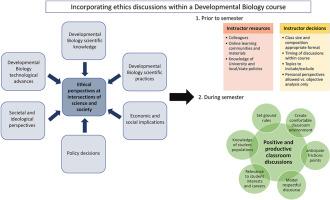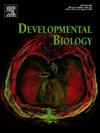Approaching ethical issues in the developmental biology classroom
IF 2.5
3区 生物学
Q2 DEVELOPMENTAL BIOLOGY
引用次数: 0
Abstract
Over the past decades, Developmental Biology has been moving steadily from a rather academic subject to an increasingly practical discipline. It has played a role in the development of contraceptive and conceptive (e.g. in vitro fertilization) technologies. The advent of embryonic (ES) and induced pluripotent stem (iPS) cells and advances in organoids, embryoids, and human-non-human chimeras offer promises and ethical challenges. Courses in developmental biology provide both opportunities and challenges for discussing the societal and ethical implications of new technologies. Here we present outcomes of a Society for Developmental Biology workshop on “teaching ethical issues in developmental biology.” We point out important considerations and possible approaches, as well as the need to set boundaries on discussions of the critical issues posed by the new science of embryonic engineering.

在发育生物学课堂上探讨伦理问题。
在过去的几十年里,发育生物学从一门相当学术性的学科稳步发展成为一门日益实用的学科。它在避孕和受孕(如体外受精)技术的发展中发挥了作用。胚胎(ES)细胞和诱导多能干细胞(iPS)的出现,以及器官组织、胚胎和人类-非人类嵌合体方面的进步,既带来了希望,也带来了伦理挑战。发育生物学课程为讨论新技术的社会和伦理影响提供了机遇和挑战。在此,我们介绍了发育生物学学会关于 "发育生物学中的伦理问题教学 "研讨会的成果。我们指出了重要的考虑因素和可能的方法,以及在讨论胚胎工程这门新科学带来的关键问题时设定界限的必要性。
本文章由计算机程序翻译,如有差异,请以英文原文为准。
求助全文
约1分钟内获得全文
求助全文
来源期刊

Developmental biology
生物-发育生物学
CiteScore
5.30
自引率
3.70%
发文量
182
审稿时长
1.5 months
期刊介绍:
Developmental Biology (DB) publishes original research on mechanisms of development, differentiation, and growth in animals and plants at the molecular, cellular, genetic and evolutionary levels. Areas of particular emphasis include transcriptional control mechanisms, embryonic patterning, cell-cell interactions, growth factors and signal transduction, and regulatory hierarchies in developing plants and animals.
 求助内容:
求助内容: 应助结果提醒方式:
应助结果提醒方式:


